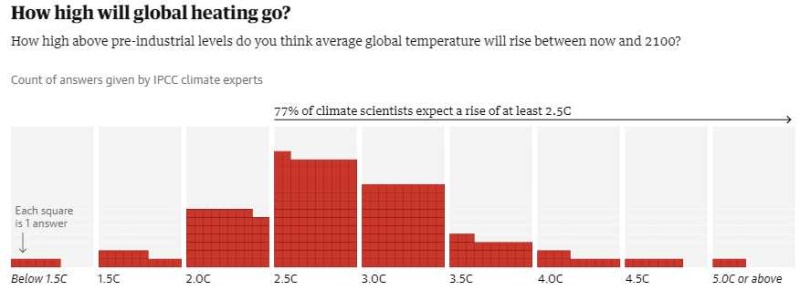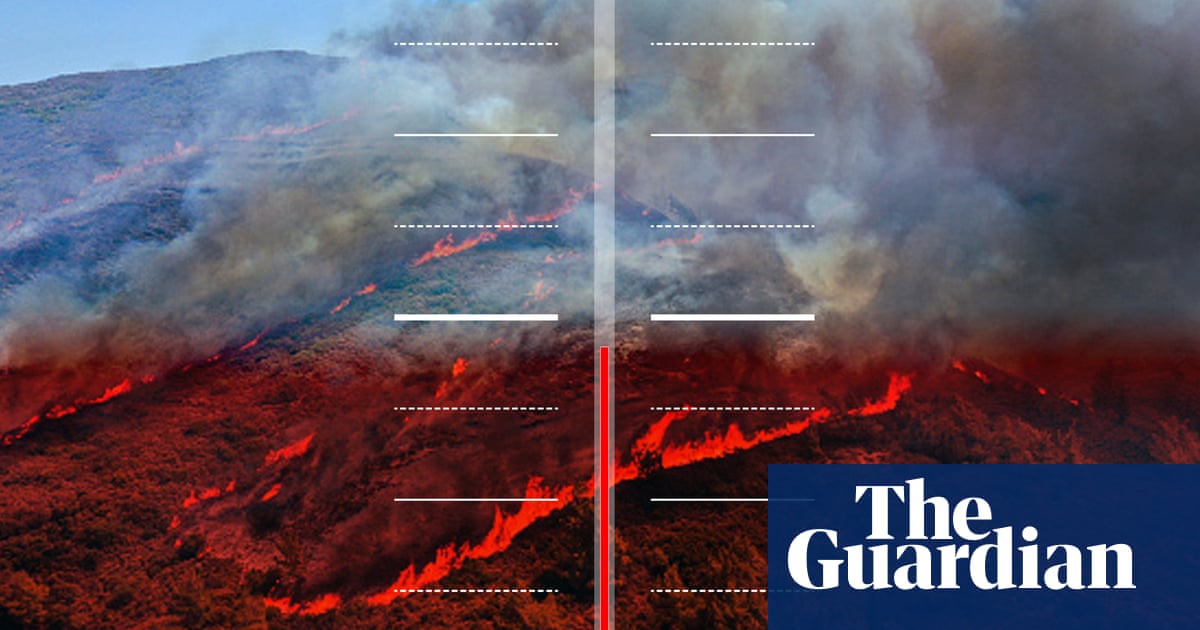- Joined
- Oct 7, 2008
- Messages
- 62,582
- Location
- Bulgaria
World’s top climate scientists expect global heating to blast past 1.5C target

Hundreds of the world’s leading climate scientists expect global temperatures to rise to at least 2.5C (4.5F) this century, blasting past internationally agreed targets and causing catastrophic consequences for humanity and the planet, an exclusive Guardian survey has revealed.
Almost 80% of the respondents, all from the authoritative Intergovernmental Panel on Climate Change (IPCC), foresee at least 2.5C of global heating above preindustrial levels,, while almost half anticipate at least 3C (5.4F). Only 6% thought the internationally agreed 1.5C (2.7F) limit will be met.
Many of the scientists envisage a “semi-dystopian” future, with famines, conflicts and mass migration, driven by heatwaves, wildfires, floods and storms of an intensity and frequency far beyond those that have already struck.
Numerous experts said they had been left feeling hopeless, infuriated and scared by the failure of governments to act despite the clear scientific evidence provided.
“I think we are headed for major societal disruption within the next five years,” said Gretta Pecl, at the University of Tasmania. “[Authorities] will be overwhelmed by extreme event after extreme event, food production will be disrupted. I could not feel greater despair over the future.”

World’s top climate scientists expect global heating to blast past 1.5C target
Exclusive: Planet is headed for at least 2.5C of heating with disastrous results for humanity, poll of hundreds of scientists finds



